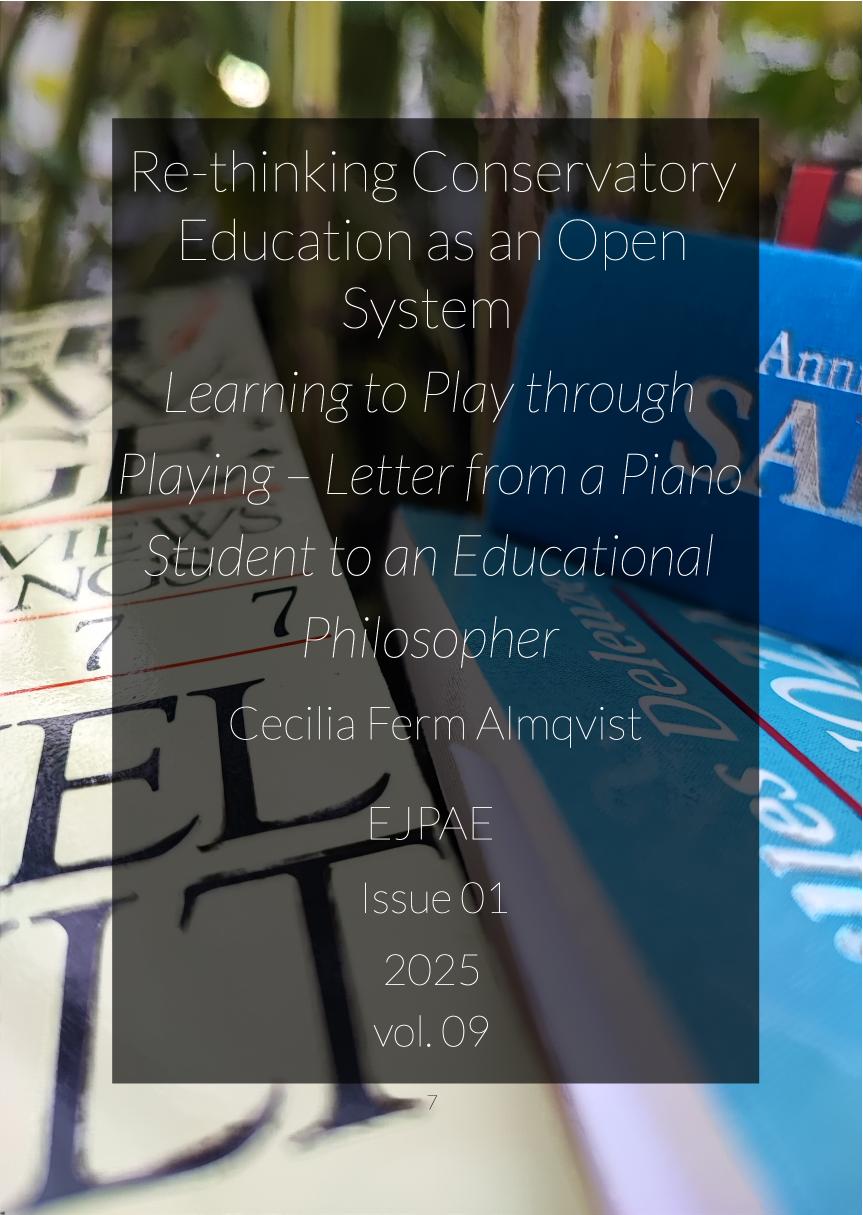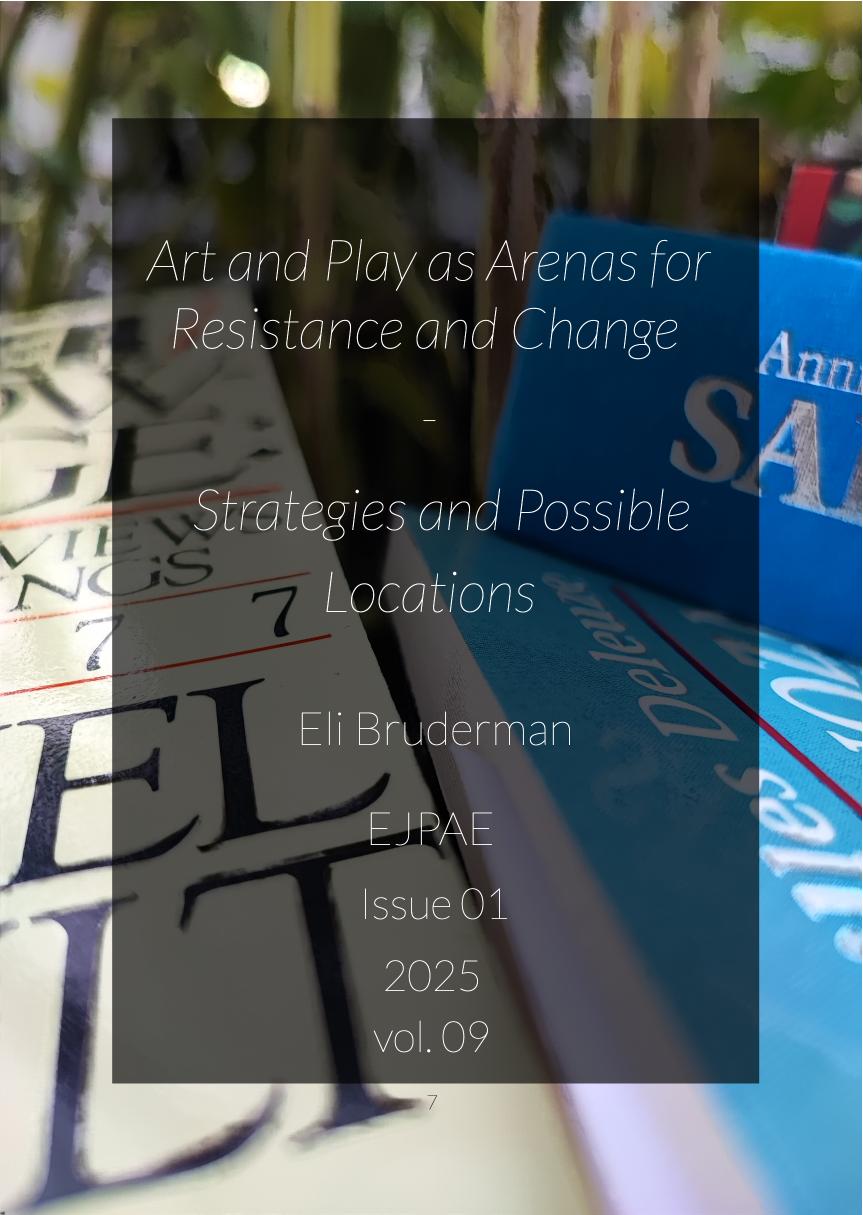The first 2025 issue is out!
At last the first 2025 issue is out!
This issue contains two articles that are united by a shared theme: both examine and critique existing institutional structures while suggesting alternative methods that emphasize individual empowerment, creative expression, and community bonds. Collectively, they encourage us to reexamine essential questions regarding the role and possibilities of arts education in today's world. I am particularly pleased to share both, as they offer intriguing insights on how the core elements of the arts—creativity, play, and imagination—can become levers for meaningful change.
The first article is "Re-thinking Conservatory Education as an Open System," by Cecilia Ferm Almqvist.
Following this is "Art and Play as Arenas for Resistance and Change: Strategies and Possible Locations," by Eli Bruderman.
Both articles, though addressing different fields of arts education converge in their call to resist the narrowing of artistic purpose and to actively reclaim the potential of creativity and play for building a more humane and democratic society. They powerfully remind us that the philosophical foundation of arts education is always a site for activism, whether personal or communal.
Read more about The first 2025 issue is out!







